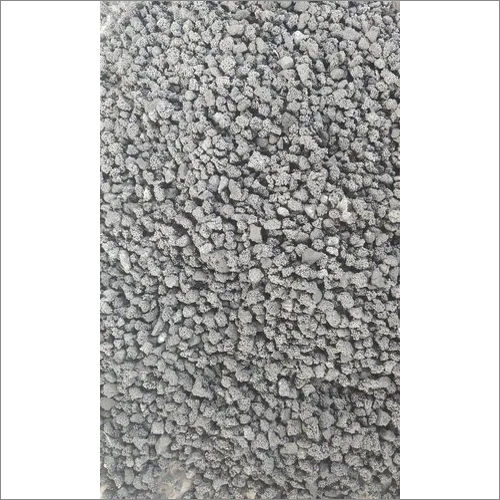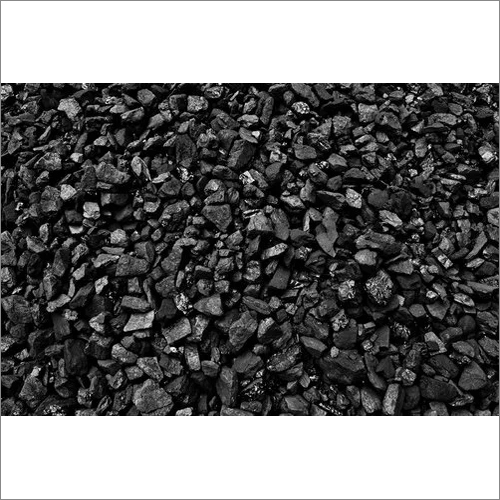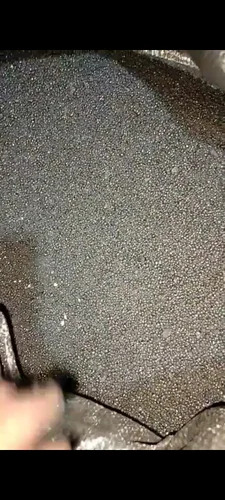Calcined Petroleum Coke
Price 20.0 INR/ Bag
Calcined Petroleum Coke Specification
- Gross Calorific Value
- 8,500 Kcal/Kg
- Coal Calorific
- 8,500 Kcal/Kg
- Size
- 1-30 mm
- Dimension (L*W*H)
- Custom Meter (m)
- Product Type
- Carbon Additive
- Material
- Petroleum Coke
- Shape
- Granule
- Moisture (%)
- Less Than 5%
- Sulphur Content (%)
- Less Than 0.5%
- Fixed Carbon
- 98%
- Phosphorus Content (%)
- 0.03%
- Volatile Matter (%)
- 1.5%
- Ash Content (%)
- 0.5%
- Weight
- 20/25/50 Kg Kilograms (kg)
- Packing Type
- Bag
- Density
- 2.03 g/cm
- Color
- Black
- Usage/Application
- Steel Foundry, Aluminum Industry
- Purity
- 98%
- Hardness
- 1.2 Mohs
- Grade
- Industrial Grade
Calcined Petroleum Coke Trade Information
- Minimum Order Quantity
- 500 Bags
- FOB Port
- VADODARA
- Payment Terms
- Cash Advance (CA), Cash in Advance (CID), Cheque
- Supply Ability
- 1000 Bags Per Month
- Delivery Time
- 7 Days
- Sample Policy
- Contact us for information regarding our sample policy
- Main Export Market(s)
- Asia
- Main Domestic Market
- All India
About Calcined Petroleum Coke
Calcined Petroleum Coke is a carbon-rich solid material that is produced by heating petroleum coke to high temperatures (typically 1200-1400C) in a rotary kiln. The process removes moisture and volatile matter, resulting in a high-purity carbon material with low ash content. Calcined Petroleum Coke is commonly used as a carbon additive in the production of steel and other metals to improve their mechanical and electrical properties.
Specification of Calcined Petroleum Coke
|
Pack Type |
50 kg |
|
Grade Standard |
Calcined Petroleum Coke |
|
Usage/Application |
Foundry |
|
Form |
Lumps |
Product Specification
|
Usage/Application |
Foundry |
|
Grade Standard |
Calcined Petroleum Coke |
|
Packaging Size |
0 to 4mm, 1 to 4mm, 5 to 25 mm, 0 to 30 mm |
|
Packaging Type |
Bag |
|
Type |
Shot Coke |
|
Color |
BLACK |
Product Description
SPECIFICATION OF CALCINED PETROLEUM COKE
- Fixed carbon: 98.6 Min
- Ash: 0.5 to 1
- V.M.: 0.5 to 1
- Moisture: 0.2 max.
- Size: 0 to 4mm, 1 to 4mm, 5 to 25 mm, 0 to 30 mm
Superior Carbon Source for Metallurgy
Calcined Petroleum Coke is prized for its high fixed carbon content and low impurities, making it indispensable in steel and aluminum production. It aids in enhancing product quality, reducing impurities, and increasing energy efficiency. Its granular shape and customizable dimensions allow easy integration into diverse industrial processes.
Consistent Performance and Reliable Packing
Packed in secure bags (20/25/50 kg), CPC features low moisture, minimal ash, and high calorific value, ensuring consistent combustion and reduced waste. The granule shape and broad size range enable adaptable usage, while stringent packing maintains product purity and performance during transport and storage.
FAQs of Calcined Petroleum Coke:
Q: How is Calcined Petroleum Coke processed for industrial use?
A: Calcined Petroleum Coke is produced by heating raw petroleum coke in rotary kilns or vertical shaft furnaces. This process eliminates volatile matter, reduces moisture, and increases fixed carbon content, resulting in a harder, purer, and more efficient material suited for metallurgical applications.Q: What are the primary uses of Calcined Petroleum Coke in the steel foundry and aluminum industry?
A: CPC is mainly utilized as a carbon additive in steel foundries to adjust the carbon content during alloy production, and in the aluminum industry as a key component in anodes for electrolytic smelting, improving conductivity and efficiency.Q: When should Calcined Petroleum Coke be added during steel production?
A: CPC is typically introduced during the molten metal stage in steel production, enabling precise control over the carbon content. Its addition promotes optimal alloy properties and reduces unwanted elements like sulfur and ash in the final output.Q: Where can Calcined Petroleum Coke be sourced in India?
A: Leading manufacturers and suppliers across India offer high-quality Calcined Petroleum Coke. It is supplied nationwide in customizable quantities and bag sizes to meet industrial demands, ensuring reliable availability for both steel foundries and aluminum plants.Q: What benefits does Calcined Petroleum Coke offer compared to other carbon additives?
A: CPC provides superior performance due to its high fixed carbon (98), low sulphur and phosphorus content, and minimal volatile matter. These attributes result in enhanced product purity, improved metallurgical quality, and increased energy efficiency for end users.Q: How does the low moisture and ash content of CPC improve industrial processes?
A: Low moisture and ash content reduce unwanted residues during combustion or alloying, leading to cleaner production environments, fewer impurities in finished metals, and lower maintenance costs related to equipment wear and residue buildup.


Price:
- 50
- 100
- 200
- 250
- 500
- 1000+
More Products in Calcined Petroleum Coke Category
Non Calcined Petcoke
Price 10000 INR / Metric Ton
Minimum Order Quantity : 1 Kilograms
Coal Calorific : High
Size : 15 mm
Weight : 50 Kilograms (kg)
Shape : Lump
GST : 24AATFK1445N1ZV
 |
Krishna Carbon
All Rights Reserved.(Terms of Use) Developed and Managed by Infocom Network Private Limited. |
 English
English Spanish
Spanish French
French German
German Italian
Italian Chinese (Simplified)
Chinese (Simplified) Japanese
Japanese Korean
Korean Arabic
Arabic Portuguese
Portuguese
 Send Inquiry
Send Inquiry


